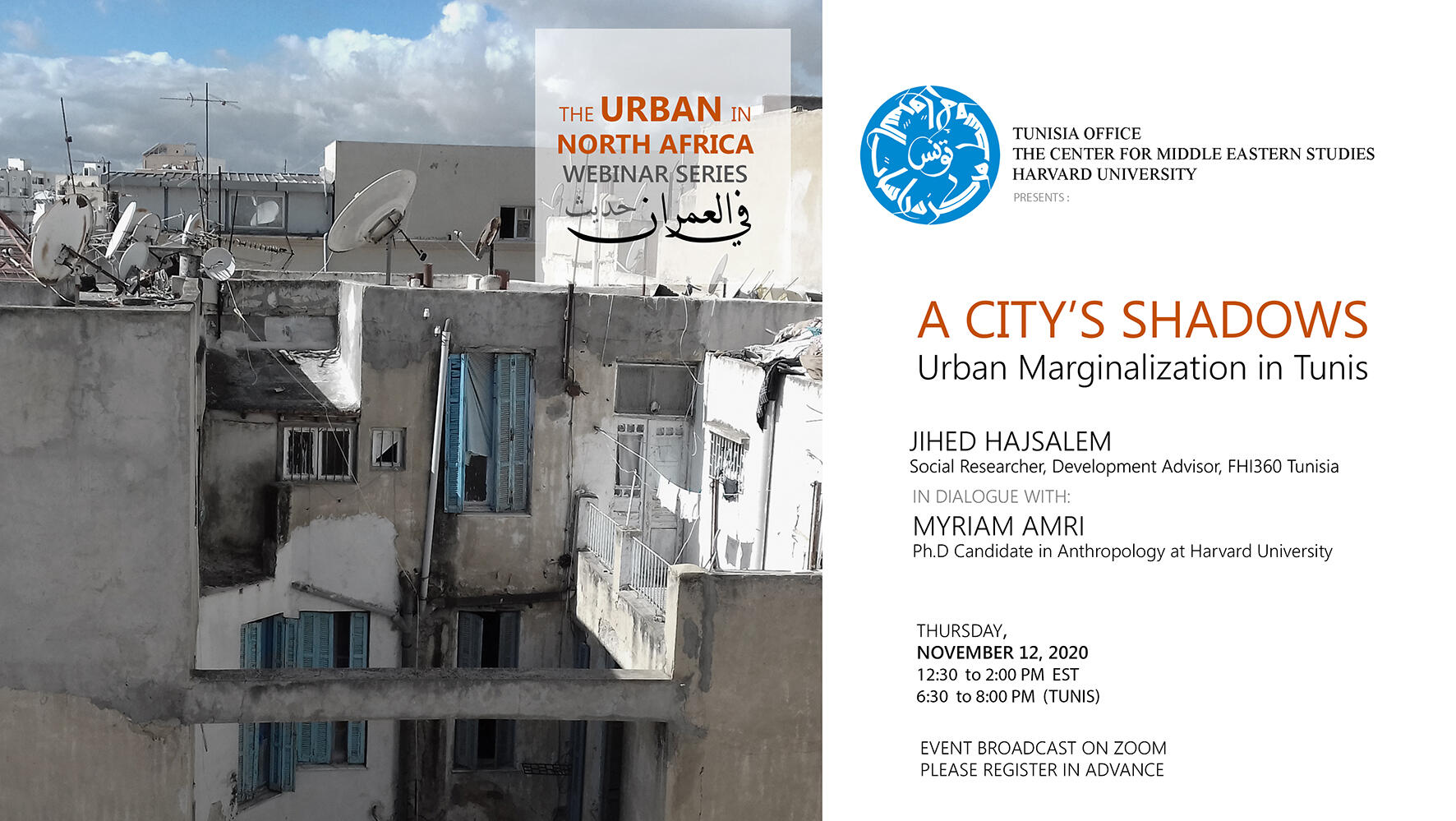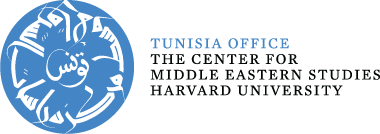Date:
Location:

The Tunisia Office of the Center for Middle Eastern Studies at Harvard University is pleased to invite you to the first session of:“The Urban in North Africa”, a webinar series prepared and moderated by Myriam Amri. The fist discussion in the series is :
"A CITY’S SHADOWS: URBAN MARGINALIZATION IN TUNIS"
With:
Jihed Hajsalem, Social Researcher and Development Adviser at FHI 360, Tunisia.
In Dialogue with:
Myriam Amri, Ph.D Candidate at Harvard University.
This talk will be held online, on Zoom, on Thursday, November 12, 2020, 12:30-2:00 PM (EST) // 6:30-8:00 PM (Tunis)
Register in advance for this webinar here: https://harvard.zoom.us/webinar/register/WN_iH2QI84rSmid42FsizdXgA
About the guest speaker:
Jihed Haj Salem is a social researcher whose research focuses on the marginalization, radicalization and politicization of youth in working-class neighborhoods in post-revolutionary Tunisia. He has contributed to books and authored articles, including: Jihadist Salafism in Tunisia: an Inventory and Perspectives (ITES, 2014); Youth and Jihadism: Forbidden Conversions (Presses de Laval University, 2016); The Sociology of Tunisia’s Borderlands: Studies on Border Regions and Working-Class Neighborhoods (International Alerte / MedAli 2018); and Being an Adolescent in Kram-West Seven years after the Tunisian Revolution (Mobdiun, 2018). Jihed is currently a Technical Advisor on the USAID Tunisia Ma3an Project, working as a Program Development Advisor for the prevention of violent extremism.
About The Urban in North Africa webinar series:
This lecture series is an interdisciplinary discussion platform to hear from scholars, artists, and filmmakers who think with and about urban spaces in North Africa. The series aims to showcase an expansive definition of the “urban” in the region, to examine changing cities, scapes, spaces, and sites, and highlight the various social phenomena that make the complex urban fabric of the region. We seek to locate how the urban is both the setting of transformation in the region and the object of transformation by discussing works that address subject-formations, political economy, spatial practices, and the environment. While urban spaces have long been at the forefront of projects of thought and of creative practices in the region, this series considers the urban “otherwise”, as ripped with intimate affects, political upheavals, and global capitalist transformations. What does it mean to see urban spaces in North Africa as sites of and for theoretical and aesthetic practices?
Questions: cmes_tunisia@fas.harvard.edu.

